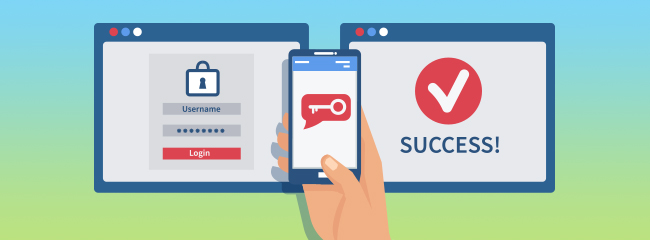Written by Shon Barrier, Vice President of Research & Development

You’re only as strong as your weakest… passwords? Security experts revealed that as cybercriminals continue to develop better tools for cracking passwords, the strength of your password doesn’t really matter.
Instead, they boast the success of multi-factor authentication (MFA) as a way to add additional “security checkpoints” to keep hackers out. But what is MFA, and how can it help your healthcare organization during COVID-19 and beyond?
Read on to find those answers.
Most people have heard of MFA (or sometimes referred to as 2FA for two-factor authentication) and may even be using it in some capacity in their personal lives. MFA provides at least one extra layer of authentication when logging into an account, beyond just your username and password combination.
For a user to successfully gain access to an application like email or a company network, they must be able to give two or more pieces of “evidence” like an additional code from a smartphone, to prove they are who they are.
For example, after configuring MFA, you may receive the second piece of evidence via a code sent to you via a code sent to you via email or text. You would then enter the code into the applications as an additional verification. Alternatively, there may be a MFA app where you simply acknowledge that you are attempting to login.
This extra layer of security makes it incredibly difficult for hackers to get past because simply knowing or cracking a password isn’t enough to gain access.
MFA is more critical for healthcare organizations now than ever before, since hospitals have shifted some of their staff to remote-style working in response to COVID-19.
When employees transition to working remotely, their home networks are not as secure as a hospital’s network, which makes it easier for hackers to tap into a Wi-Fi connection or home network to gather information.
That’s why hospitals must implement processes like MFA to validate that users requesting access to various systems are who they're claiming to be.
While MFA is cost-effective and a simple method to close security gaps, Google reports that only 10 percent of their users enable it, crediting the reason to simply that people are unaware of how MFA can secure access points.
According to research found by Microsoft, currently, there are…
Microsoft reports that with multi-factor authentication, organizations can prevent 99.9 percent of automated cyberattacks on Microsoft platforms, websites, and other online services, making it a simple security tool that organizations cannot afford to ignore.
As the healthcare industry continues to shift towards greater data access, experts urge organizations to use caution and ensure proper security measures are in place.
Multi-factor authentication is one of the simplest steps you can take to create additional layers of security.
Contact us if you’re interested in learning more about multi-factor authentication and our other security solutions.